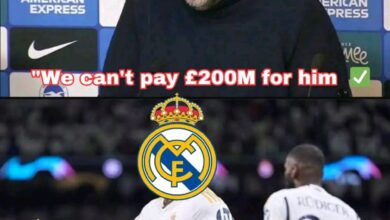Tottenham Hotspurs EPL to take action that may result to point deduction

In the realm of professional football, where every decision on the pitch can have significant ramifications, the importance of fair and accurate officiating cannot be overstated. The implementation of the Video Assistant Referee (VAR) system in the Premier League was introduced with the intention of reducing human error and ensuring that match outcomes were as fair as possible. However, despite this technological advancement, controversies and debates surrounding its application continue to persist. The recent Premier League clash between Newcastle United and Tottenham Hotspur serves as a pertinent example of how VAR can still be a source of contention.
On the 3rd of September, 2024, Tottenham Hotspur, under the stewardship of their manager Ange Postecoglou, faced off against Newcastle United in a highly anticipated match. Both teams entered the contest with their unbeaten records on the line. However, by the final whistle, it was Tottenham who suffered their first defeat of the season, with Newcastle emerging victorious with a 2-1 win. Goals from Alexander Isak and Harvey Barnes secured the three points for the Magpies, despite Tottenham’s dominance in terms of possession and attempts on goal.
Tottenham’s statistical superiority in the match was clear. They enjoyed 66% of possession and registered 20 shots, a figure more than double that of Newcastle’s nine. Yet, despite their control of the game, Spurs were unable to find a way past Newcastle’s resolute defense, marshaled by the impressive performance of goalkeeper Nick Pope. The game’s turning point came when Newcastle’s high-pressing tactics and Tottenham’s high defensive line were exploited. Jacob Murphy, a key figure in Newcastle’s attacking setup, managed to evade the offside trap and delivered a precise pass to Alexander Isak, who duly converted the opportunity to put his side ahead.
While the outcome of the match was disappointing for Tottenham, the performance of one of their players, Wilson Odobert, did not go unnoticed. The young talent has been a bright spot in Tottenham’s lineup this season, and his contributions on the pitch have drawn praise from various quarters, including former footballer and pundit Micah Richards. Odobert’s impressive form has been a rare positive in what has been a challenging start to the season for Spurs.
However, the match was not without its controversies, particularly concerning the use of VAR. An incident involving Tottenham’s Radu Dragusin and Newcastle’s Alexander Isak has sparked debate over the correct application of VAR protocols. The incident in question occurred when Isak was bearing down on goal, and Dragusin attempted a last-ditch tackle to dispossess him. On first viewing, it appeared that Dragusin may have made contact with Isak’s leg, causing the striker to fall to the ground. Despite the seemingly clear contact, the on-field referee, Robert Jones, did not award a penalty, and VAR chose not to intervene.
The decision not to award a penalty has led to significant criticism, particularly regarding the consistency of VAR’s involvement in such incidents. When reviewing the footage, it seemed evident that Dragusin’s studs made contact with Isak’s ankle, which could have easily disrupted the striker’s balance. Given the speed at which the incident occurred, even minor contact could have been enough to cause Isak to lose his footing. The fact that Dragusin did not make any contact with the ball further compounded the controversy, raising questions about why VAR did not recommend a review of the decision.
To understand the rationale behind the decision, it is important to consider the guidelines under which VAR operates. According to the rules, for subjective decisions such as fouls or handball incidents, the on-field referee’s initial decision is critical. The VAR team is instructed to only overturn the decision if there is clear and obvious evidence of an error. In this case, the referee, positioned approximately 30 to 40 yards away from the incident, may not have had the best view of the event. This is precisely where VAR is expected to provide assistance, offering a second pair of eyes to ensure that the correct decision is made.
Despite this, VAR chose to uphold the referee’s original decision, a move that has been met with widespread criticism. Many argue that the available footage provided enough evidence to suggest that a penalty should have been awarded, especially given the contact between Dragusin and Isak. The lack of consistency in VAR’s application has been a recurring theme in the Premier League, leading to frustration among players, managers, and fans alike.
The incident has drawn comparisons to a similar situation involving Matty Cash earlier in the season. In that case, a penalty was awarded for a tangle of legs, even after the defender had successfully won the ball. The fact that Dragusin did not even make contact with the ball in the Tottenham vs. Newcastle incident only adds to the perplexity surrounding the decision. Critics have pointed out that such inconsistencies undermine the credibility of VAR and its role in ensuring fairness in the game.
This is not the first time that referee Robert Jones has found himself at the center of a controversial penalty decision. Last season, he faced criticism from Wolves manager Gary O’Neil for awarding a penalty against Fabio Silva for what appeared to be minimal contact with Sheffield United’s George Baldock. The incident bore similarities to the one involving Isak, where a small amount of contact led to a significant impact on the outcome of the game. Such incidents highlight the subjective nature of penalty decisions and the challenges referees face in making the right call.
The VAR rules, as they currently stand, place a significant emphasis on the on-field referee’s original decision. For subjective calls, the VAR team is instructed to support the referee’s judgment unless there is conclusive evidence to suggest a mistake. However, this approach has been criticized for being too rigid and failing to account for situations where the referee’s view may be obstructed or limited, as was arguably the case in the Tottenham vs. Newcastle match. In such instances, it is imperative that VAR takes a more proactive role in advising the referee to review the incident on the pitchside monitor.
The broader implications of such decisions are significant. In a league as competitive as the Premier League, where the margins between success and failure are often razor-thin, the accuracy of officiating decisions can have a profound impact on a team’s season. A single incorrect decision can alter the course of a match, potentially affecting the final standings in the league table. For Tottenham, the failure to award a penalty in their favor could have been the difference between securing a draw and suffering a defeat.
Moreover, the continued controversies surrounding VAR threaten to erode confidence in the system. While VAR was introduced to reduce errors and enhance the fairness of the game, its inconsistent application has led to increasing skepticism among stakeholders. Managers, players, and fans have expressed frustration at the lack of clarity and transparency in VAR decisions, calling for reforms to improve the system’s effectiveness.
One potential solution to address these issues is to allow greater use of the pitchside monitor by referees. By reviewing incidents directly, referees can gain a better understanding of the situation and make more informed decisions. This approach would also help to ensure that the final decision rests with the on-field referee, maintaining their authority while benefiting from the technological support of VAR.
Another area for improvement is the communication between the VAR team and the match officials. Enhancing the dialogue between the two parties could lead to more accurate decisions and reduce the likelihood of errors. Additionally, providing more detailed explanations to the public regarding the reasoning behind VAR decisions could help to build trust in the system and alleviate some of the frustration that currently exists.
In conclusion, the Premier League match between Newcastle United and Tottenham Hotspur on the 3rd of September, 2024, highlighted the ongoing challenges associated with the use of VAR in football. The controversy surrounding the decision not to award a penalty to Tottenham has once again brought the issue of consistency and accuracy in officiating to the forefront. While VAR has the potential to enhance the fairness of the game, its current implementation has been marred by inconsistencies and controversies. To ensure that VAR fulfills its intended purpose, reforms are needed to improve the system’s reliability and restore confidence among all those involved in the sport.















